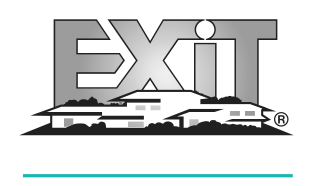In the complex landscape of financial instruments, one option that often stands out for seniors is the Home Equity Conversion Mortgage (HECM) reverse mortgage. Designed to provide financial flexibility for homeowners aged 62 and older, HECM reverse mortgages have become a popular tool for unlocking the equity in one’s home. In this blog, we will demystify the workings of HECM reverse mortgages, exploring their features, benefits, and potential considerations.
Understanding the Basics:
A HECM reverse mortgage is a unique type of loan that allows homeowners to convert a portion of their home equity into cash. Unlike traditional mortgages where homeowners make monthly payments to lenders, in a reverse mortgage, the lender makes payments to the homeowner. This financial arrangement can be an attractive option for seniors looking to supplement their retirement income.
Eligibility Criteria:
To qualify for a HECM reverse mortgage, homeowners must meet certain criteria. The primary requirements include being at least 62 years old, owning the home outright or having a low mortgage balance that can be paid off with the proceeds from the reverse mortgage, and residing in the home as the primary residence.
Loan Disbursement Options:
Once eligible, homeowners can choose how they want to receive the funds from the reverse mortgage. Common options include a lump sum, monthly payments, a line of credit, or a combination of these. The flexibility in disbursement allows seniors to tailor the loan to meet their specific financial needs.
Repayment and Interest:
One of the distinctive features of HECM reverse mortgages is that they don’t require immediate repayment. The loan becomes due when the last remaining borrower passes away, sells the home, or no longer uses it as their primary residence. Additionally, interest accrues over time but is not paid until the loan becomes due. This setup provides seniors with the freedom to access their home equity without the burden of monthly repayments.
Safeguards and Protections:
HECM reverse mortgages are regulated by the Federal Housing Administration (FHA) to ensure consumer protection. The FHA sets limits on loan amounts, mandates counseling for potential borrowers, and establishes guidelines for lenders to follow. These safeguards aim to prevent abuse and ensure that seniors make informed decisions about their financial future.
Considerations and Risks:
While HECM reverse mortgages offer financial advantages, it’s essential for homeowners to carefully consider the potential risks. As interest accrues over time, the loan balance can grow, potentially eroding the equity remaining in the home. Additionally, heirs may have to repay the loan or sell the home when the borrower passes away. Therefore, thorough research and consultation with financial advisors are crucial before committing to a HECM reverse mortgage.
Conclusion:
HECM reverse mortgages can be a valuable financial tool for seniors seeking to tap into their home equity during retirement. Understanding how these mortgages work, their eligibility criteria, disbursement options, and associated risks empowers homeowners to make informed decisions about their financial future. As with any financial decision, careful consideration and professional guidance are essential to ensure that a HECM reverse mortgage aligns with individual needs and goals.


